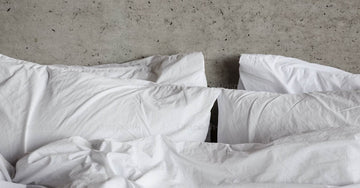Simple Tips To Help You Fall Asleep Quickly

Get on a Schedule
Waking up and going to bed at the same times each day can help your internal clock keep a regular schedule and help you to fall asleep much easier.

Exercise During The Day
Exercise can increase the duration and quality of sleep by boosting the production of serotonin in the brain and decreasing levels of cortisol, the stress hormone.
Limit Caffeine Intake
Especially later in the day. Instead, try chamomile tea, which has been shown to promote sleep and relaxation.

Watch What and When You Eat
research has shown that high-carb meals may be detrimental to a good night’s rest. Instead, high-fat meals could promote a deeper and more restful sleep.
Turn Off All Electronics
Research shows that using electronic devices late at night makes it significantly harder for you to fall and stay asleep.
Unwind time
Give yourself 30 minutes to an hour to wind down in the evening before getting in bed. This allows your body and mind to relax and prepare for sleep.
Meditation Practice
Meditation an enhance melatonin levels and assist the brain in achieving a specific state where sleep is easily achieved.
Use the 4-7-8 Breathing Method
- First, place the tip of your tongue behind your upper front teeth
- Exhale completely through your mouth and make a whoosh sound.
- Close your mouth and inhale through your nose while mentally counting to four.
- Hold your breath and mentally count to seven.
- Open your mouth and exhale completely, making a whoosh sound and mentally counting to eight.
- Repeat this cycle at least three more times.

Practice Journaling
Research has shown that journaling and writing down the positive events of the day can create a state of gratitude and happiness, calm the mind and help you sleep better.
Lower the Room Temperature
By helping the body lower its core temperature, you’ll generally fall asleep faster. The suggested bedroom temperature should be between 15–23°C




